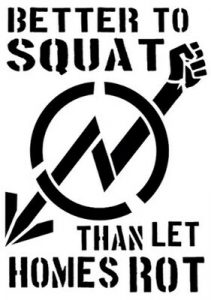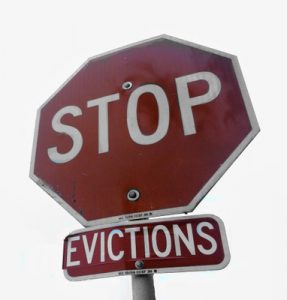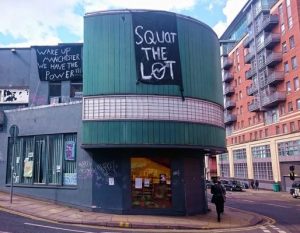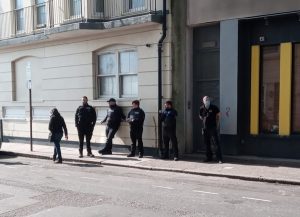 The first London Intersquat in several years took place at a secret occupied location last Saturday, 17th October. Formerly a regular event, the meet-up was attended by nearly 50 members of London’s autonomous community, representing more than a dozen squatted buildings across the city.
The first London Intersquat in several years took place at a secret occupied location last Saturday, 17th October. Formerly a regular event, the meet-up was attended by nearly 50 members of London’s autonomous community, representing more than a dozen squatted buildings across the city.
Amongst a range of subjects discussed, the agenda covered news reports on the recent successful resistances against illegal evictions, sharing different tactics for using the law and the barricade to prevent bailiffs and security from entering. Action groups were formed to restart Practical Squatters Evenings – an event that for over a decade took place weekly and was an opportunity for old squatters and new to meet each other to form crews and share information and experience. Others joined to support the newly emerging Resisting Anti-Trespass (RAT) movement that is organising to challenge the forthcoming changes to the law – changes that threaten not only squatters, but protesters, travellers and ramblers alike, potentially criminalising thousands of people across the UK. Another group elected to revive the currently dormant Squatters of London Action Paper (SLAP) in response to the need for our community to report, share and create the media that is relevant to us – as well as to acknowledge a welcome return of the infamous Bastard Watch column that named and shamed an ever-growing number of sneaky bailiffs and landlords. Questions were also raised about the status of EU migrants and those from outside the UK considering the imminent Brexit and how we might organise in solidarity through groups such as the Anti-Raids network, aswell as how to form greater unity with the burgeoning tenant’s rights movement with such groups at the London Renter’s Union and ACORN. [Read More]




